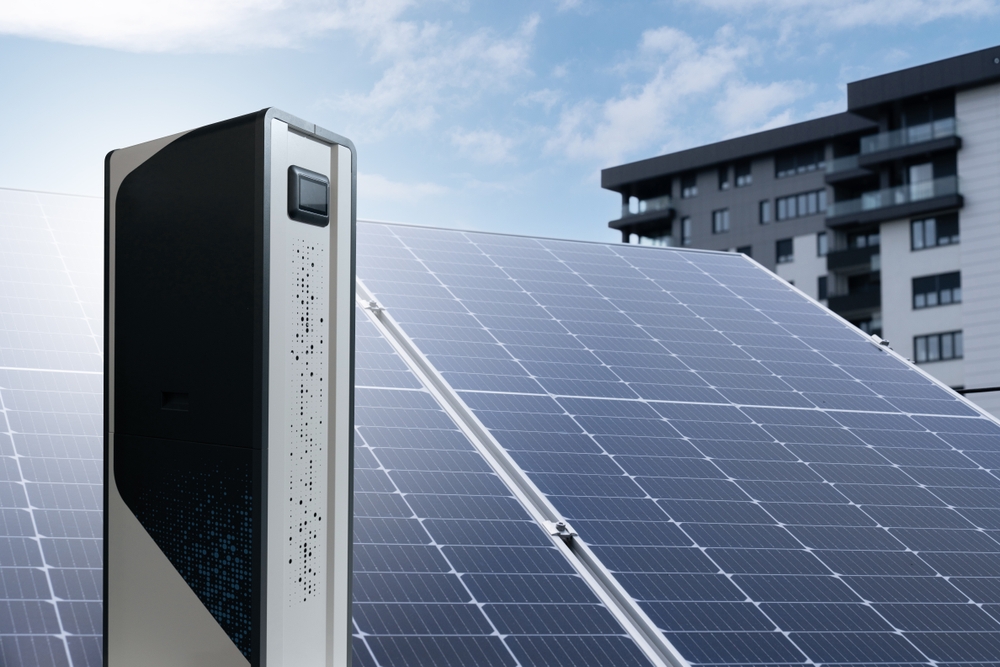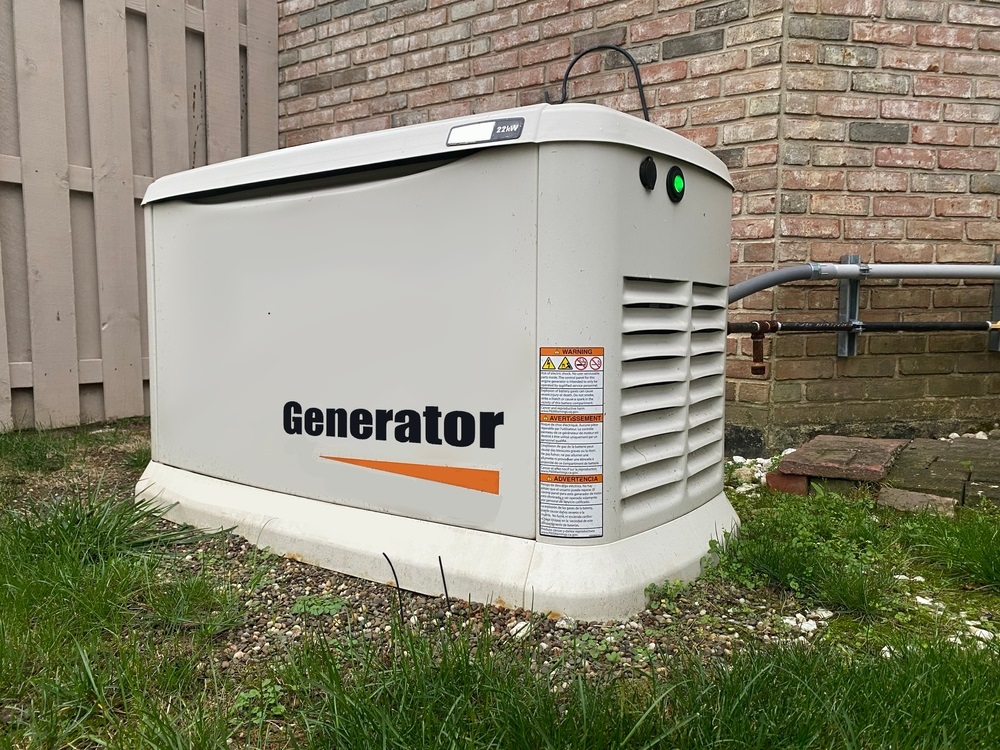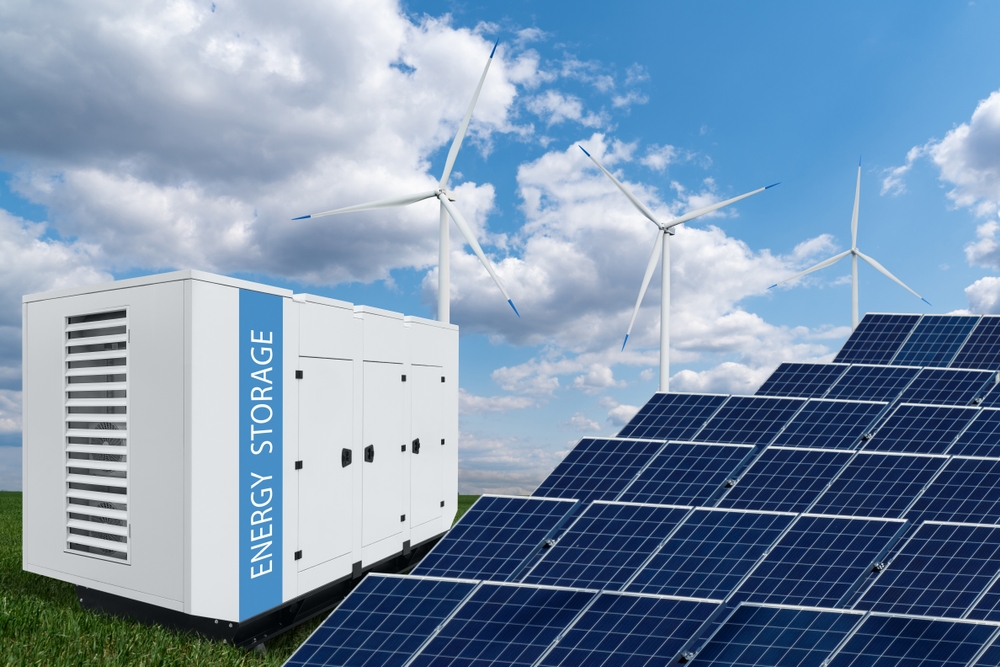When it comes to securing reliable power during a grid outage, choosing between a solar battery backup and a backup generator can be overwhelming. Both systems provide vital emergency backup during power interruptions, but they differ significantly in terms of technology, sustainability, and long-term benefits. At Pelican Coast Electric, we understand the importance of choosing the right solution to meet your specific needs. This article will explore solar battery backups versus generators to help you make the best choice for your home backup needs.

Understanding Solar Batteries: The Green Backup Power Solution
A solar battery backup system is a cutting-edge energy storage solution that allows you to store excess solar energy generated during the day and use it during the night or in case of grid outages. These battery storage systems are increasingly popular because they provide energy resilience, help reduce electric bills, and promote energy independence.
Read more: How to Choose the Right Home Generator
How Solar Battery Backup Systems Work
Solar battery backup systems work by storing excess energy produced by your solar panel system during daylight hours. As your solar panels generate electricity, any energy that isn’t immediately used is stored in a battery for later use. This stored energy can then be accessed during grid outages, at night, or whenever your home’s electrical panel needs extra power.
- Energy Storage: Your solar battery storage system stores excess solar energy in battery units during the day.
- Home Backup: At night or during grid electricity failure, the system pulls from the stored battery backup to power household appliances.
- Energy Independence: By using stored solar power, you reduce reliance on the electrical grid, making you less vulnerable to power cuts.
The ability to tap into stored energy at any time gives homeowners peace of mind, knowing they won’t be without power in case of emergencies like natural disasters or grid outages.
- Key Benefits:
- Energy Resilience: Offers peace of mind during emergency backup situations, ensuring reliable power even during prolonged power outages.
- Sustainability: Harnesses the power of solar energy to reduce your carbon footprint.
- Lower Electric Bills: By storing solar energy, you use less grid electricity, potentially lowering your electric bills over time.
- Storage Capacity: Choose from different storage systems to meet the power requirements of your home’s electrical panel, from smaller home battery backup systems to larger battery storage units.
Pros of Solar Battery Backups
- Renewable Energy: Solar battery backup systems use clean energy from the sun, offering a sustainable way to power your home while reducing your carbon footprint.
- Energy Independence: With a solar battery storage system, you can be less reliant on grid electricity, ensuring you’re more self-sufficient, even during power outages.
- Minimal Maintenance: After installation, solar battery systems require very little maintenance, providing a hassle-free home backup solution.
- Eco-Friendly: Solar power systems don’t emit harmful pollutants or produce carbon monoxide, making them much safer and more eco-conscious than gas generators.

Understanding Backup Generators: A Reliable Power Backup Option
A backup generator, whether it’s a standby generator or a portable power station, provides an effective, reliable backup during power outages. Generators have long been the standard for emergency backup, using fuel (such as gasoline or diesel) to generate power when the electrical grid fails.
How Backup Generators Work
Generators operate by converting fuel into electrical energy. When the power goes out, the generator starts automatically (in the case of a standby generator) or can be manually switched on (portable battery models). Once activated, the generator powers your home’s electrical panel by drawing from its fuel source.
- Fuel-Based Power: Generators rely on fuels such as gasoline, diesel, or natural gas to create electricity.
- Standby Power: Standby generators turn on automatically when the grid goes down, providing immediate backup for your home.
- Longer Runtime: Generators can run continuously as long as they have fuel, providing power for extended outages.
Generators can be especially useful in areas that frequently experience grid outages or natural disasters, providing backup power options that are more accessible than solar battery storage in remote locations.
- Key Benefits:
- Immediate Power: Generators provide immediate power once activated, ensuring you’re never left without backup.
- Portable Power: Portable generators can be used for both home backup and outdoor activities like camping, making them versatile.
- Longer Run Time: As long as you have enough fuel, a generator will run indefinitely, making it ideal for larger homes or when you need extended power.
Pros of Backup Generators
- Reliability: Generators are reliable and provide power almost instantly, ensuring your household stays operational.
- Fuel Flexibility: Depending on the type, you can choose between gas generators, diesel-powered models, or even solar generators for a more eco-friendly option.
- Cost-Effective: Generally, backup generators are less expensive to install than a solar battery backup system, making them a viable option for those on a budget.
- Portable Power Station: If you’re looking for a more flexible power backup solution, portable generators provide convenience and ease of use, allowing you to use them in various locations.

Solar Batteries vs. Backup Generators: Key Differences
To make the right decision for your home, it’s crucial to compare the key differences between solar battery backup systems and backup generators.
Power Source
- Solar Battery Backups: Rely on solar energy stored in battery storage systems, offering a clean, renewable source of power.
- Generators: Operate on fuel, such as gasoline or natural gas, and emit carbon monoxide, which can be dangerous, especially in enclosed spaces.
Cost Considerations
- Solar Batteries: Initial installation costs for a solar battery backup system can be high, but there are often tax credits and solar tax credits that can help reduce the cost. In the long run, solar energy storage systems lead to lower electric bills due to reduced dependence on grid electricity.
- Generators: Backup generators generally have a lower upfront cost but require ongoing fuel expenses and maintenance, making them more expensive over time.
Efficiency and Maintenance
- Solar Batteries: Battery backup systems are efficient in energy storage, and once installed, they require minimal upkeep. They are easy to integrate with existing solar power systems and are typically low-maintenance.
- Generators: Generators require regular maintenance (fuel checks, oil changes, etc.), and their efficiency depends on the fuel source. They may also need to be stored and serviced more frequently.
Environmental Impact
- Solar Batteries: With no emissions or harmful pollutants, solar battery backup systems are eco-friendly, relying entirely on solar energy to power your home.
- Generators: Gas generators produce carbon monoxide and other emissions, making them less environmentally friendly.
| Feature | Solar Battery Backups | Backup Generators |
| Power Source | Solar energy stored in batteries | Fuel-based (gas, diesel, natural gas) |
| Energy Independence | Reduces reliance on the grid | No energy independence; fuel dependent |
| Sustainability | Eco-friendly, renewable | Non-renewable, emissions produced |
| Cost | Higher upfront cost | Lower initial cost |
| Maintenance | Low maintenance | Requires regular maintenance |
| Run Time | Limited by battery capacity | Unlimited with fuel |
| Noise | Silent | Noisy during operation |
| Environmental Impact | Zero emissions | Carbon emissions |
| Best For | Homes seeking eco-friendly, sustainable power | Long outages, remote areas |
Choosing the Best Backup Power Solution for Your Home
Choosing between a solar battery backup system and a generator depends on your specific needs, location, and budget.
Solar Battery Backup Systems are Best for:
- Homeowners seeking energy independence and eco-friendly solutions.
- Those who want to reduce electric bills by leveraging stored solar energy.
- Individuals who want peace of mind knowing that their home backup system is environmentally conscious and reliable.
Backup Generators are Best for:
- Homeowners needing immediate emergency backup power, especially during prolonged outages.
- Those in areas prone to natural disasters or areas where solar energy is not practical.
- People who require a portable power station for off-grid use or emergency situations.
Pelican Coast Electric Residential Electrical Services: Reliable Power Solutions
At Pelican Coast Electric, we specialize in providing reliable and efficient electrical services for homeowners. Whether you need backup power solutions, system upgrades, or new installations, our team is here to help. Our residential services include:
- Solar Battery Backup Systems: Ensure energy resilience with clean, renewable energy and minimize reliance on grid electricity.
- Generator Installation, Repair, and Maintenance: Keep your home powered during grid outages with a backup generator tailored to your needs.
- Electrical Panel Upgrades and Replacements: Upgrade or replace your electrical panel to handle the increased demand of modern energy solutions like solar and EV chargers.
- EV Charger Installation: Power your electric vehicle efficiently with our expert installation of EV charging stations.
- Whole House Surge Protector Installation: Protect your appliances and electronics from voltage spikes with a whole-house surge protector.
- Electrical Inspection: Ensure your home’s electrical system is safe, up to code, and functioning properly with a comprehensive inspection.
- Solar Panel Installation: Reduce your energy bills and increase energy independence with a custom solar panel system designed for your home.
Frequently Asked Questions (FAQ)
WHAT IS THE DIFFERENCE BETWEEN A SOLAR BATTERY AND A GENERATOR?
The primary difference is that solar batteries store energy from solar panels and provide eco-friendly backup power, whereas generators run on fuel and offer immediate but non-renewable power.
HOW LONG DO SOLAR BATTERIES LAST?
The lifespan of solar battery storage systems typically ranges between 10-15 years, depending on usage and quality. Over time, the capacity of the battery may decrease slightly, but it remains a reliable option for home backup.
ARE GENERATORS CHEAPER THAN SOLAR BATTERIES?
While generators have a lower initial cost, solar battery storage offers long-term savings by reducing electric bills and offering energy independence. Additionally, solar tax credits can help lower installation costs for solar battery systems.
CAN I USE A GENERATOR AND A SOLAR BATTERY SYSTEM TOGETHER?
Yes, combining a solar battery and a generator provides the best backup power options for homes that want energy resilience. The solar battery backup system stores energy, while the generator offers emergency power during extended outages.
WHICH OPTION IS BETTER FOR THE ENVIRONMENT?
Solar battery backup systems are significantly more eco-friendly than generators because they rely on solar energy and have no harmful emissions, whereas generators produce carbon monoxide and other pollutants.
Conclusion: Which Backup Power Solution is Right for You?
At Pelican Coast Electric, we specialize in providing tailored solutions for your backup power needs. Whether you choose a solar battery backup system for energy independence or a generator for immediate power, our team is ready to help you make the best choice for your home. Contact us today to learn more about how we can ensure peace of mind and reliable backup power options for your home.

